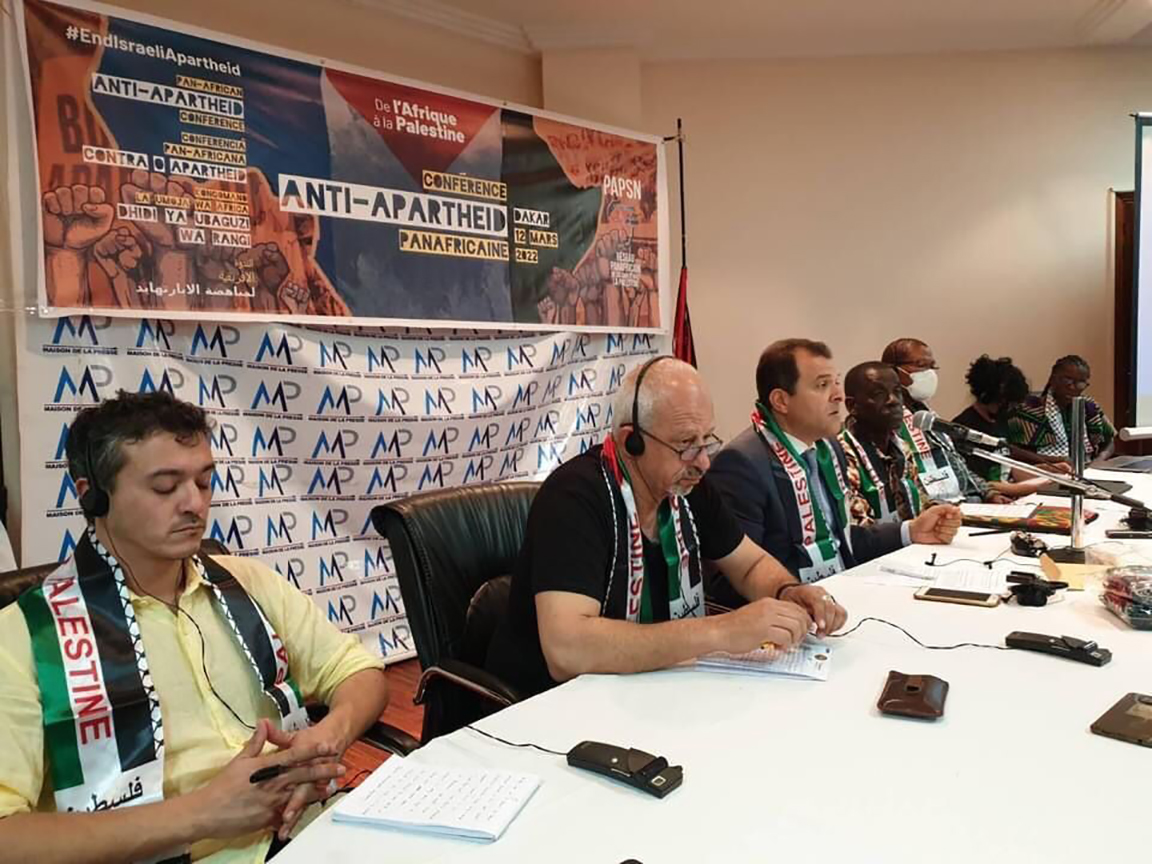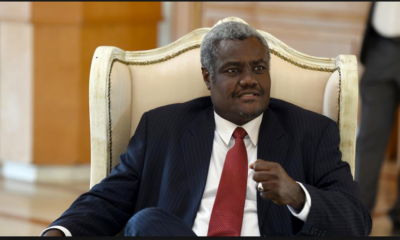
Featured Item

African anti-Israel groups attempt to mobilise in Dakar
When the African Union (AU) admitted Israel as an observer in 2021, a number of African countries were furious, with South Africa leading the charge. And when the AU decided to postpone discussion on the issue at its recent summit, they became even more livid.
Now, anti-Israel activists from 21 African countries have gathered in a new forum called the Pan African Palestinian Solidarity Network (PAPSN), which looks like a desperate reaction to an AU that’s embracing Israel.
It was AU Commission Chairperson Moussa Faki Mahamat who made the unilateral decision to admit Israel as an observer.
In his official remarks on 6 February 2022 at the AU summit in Addis Ababa, he doubled down on the decision, saying that four-fifths of AU member states had developed a relationship with Israel. “[Observer status] is a faithful reflection of a tangible, irrefutable reality: that of the recognition of Israel on a very large scale in Africa,” Mahamat said.
But last week, delegates attempted to reverse this fact. The gathering was attended by representatives of civil society organisations and groupings from Botswana, Cameroon, Cote d’Ivoire, Democratic Republic of the Congo, The Gambia, Ghana, Guinea-Bissau, Kenya, Malawi, Mauritania, Morocco, Mozambique, Namibia, Nigeria, Senegal, South Africa, Sudan, Tanzania, Tunisia, Zambia, and Zimbabwe.
The entire two-day event was a festival of Israel condemnation and an echo chamber of delegates attempting to convince themselves that Israel’s strong ties with Africa could be obliterated. Particularly harsh on their fellow Africans were declarations that Christian support of Israel should be eliminated, and that Israel’s humanitarian support in African countries was unwelcome.
“Ultimately this is a reaction to the AU providing Israel with observer status and taking a rain check on the issue for the next year or so,” says local political analyst Daniel Silke. “There’s contestation on Israel’s observer status, but it’s not going to threaten the cohesiveness of the AU. This is an attempt to elevate the Palestinian issue on the African continent from those seeking to exclude Israel as far as possible. Ukraine has taken the spotlight off Israel, and I think there will be renewed efforts to isolate Israel and raise that particular issue in global alliances.”
Sara Gon, the head of strategic engagement at the Institute of Race Relations, notes that “PAPSN doesn’t seem to be a challenge to the AU as much as it appears to be a super grouping of anti-Israel lobbies and nongovernmental organisations.
“Presumably it intends to put pressure on their 21 respective countries’ governments to boycott Israel, push Israel to be declared an apartheid state by the UN, and, by implication the termination of the Jewish state,” she says. “It’s not a threat to the AU or its members but it’s another irritant in this battle. Although they have taken an antagonistic stand towards Israel-friendly Christian groups, I don’t believe it will hold much sway in most of the countries [that attended], 21 of which are majority Christian.”
Local political analyst Steven Gruzd agrees that it’s a reaction to the AU upholding Israel’s observer status. “This is also an attempt to get attention while the world’s focus is on Ukraine,” Gruzd says. “The Palestinian issue has fallen off the international agenda in a big way in the past few years. It’s a reaction to that, and trying to get publicity at a time when the world is looking elsewhere. It will have very little impact. The number of organisations that attended from a long list of countries should be a concern for Israel supporters, but it’s not official and is purely symbolic. They will seek to put pressure on Israel, but I think Israel has dealt well with this kind of pressure before.”
Rowan Polovin, the national chairperson of the South African Zionist Federation, says, “Israel has made significant strides in improving relations with African states. The majority of African countries now have positive and open diplomatic relations with Israel and collaborate on numerous initiatives to bring water, electricity, and food security to millions of African people. It’s unfortunate that a small, hateful group of extremists are trying to block Africa’s progress, but we can take comfort in the fact that they will almost certainly fail and that Africa’s friendship with Israel will prosper.”










